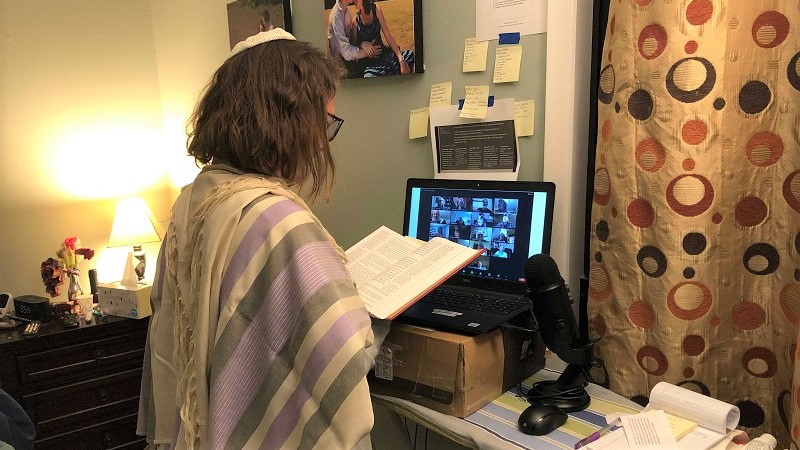It’s been a year. A year of mask-wearing, a year of Zoom meetings, a year without physical gatherings. Has the word “community” changed for you over the past year the way it’s changed for me?

The thing is, global pandemic or not, there’s no denying that part of being Jewish is being in community. In fact, from our earliest communities spoken about in the Torah in this week’s double portion, being together is tantamount. This week we read Vayakhel and Pekudei. The narrative continues with the requirement to observe Shabbat and then includes the request to bring gifts to build the Mishkan, the sacred space that God will dwell among the Israelites. Following that, Betzalel and Ohilav are appointed as the taskmasters of the construction project, and we hear about the abundance of gifts the Israelites brought to the Tabernacle. Parshat Pekudei deals with the final judgments about who will work on the Tabernacle and what the priests are supposed to wear. Finally, the text takes up the building and establishment of the Mishkan.
The word va’yakhel (where one of the parshiyot gets its name) is translated to mean the verb “convoked,” but in modern Hebrew the root is the same as the noun kehillah, community. This verb is only used for a gathering of human beings. The text teaches that Moses communitied, as it were, the entire body of Israel and spoke to them. Why and how did he “community”?
The Israelites are still healing emotionally from the incident of the Golden Calf. They are a fractured nation. In this moment as the Tabernacle is being finished, Moses is trying to rebuild community. He wants to gather the people together, despite their differences, to rebuild trust and unity. While each individual has their right to be alone, or even have some privacy, in this moment, after a national tragedy, Moses understands the need for everyone to be together.
One of the first mishnayot I have a memory of internalizing is from Hillel: “Do not separate yourself from the community.” In moments of strife or conflict or even loss, it is easy to separate yourself and hold back. However, Hillel and Moses remind us that we are meant to work through our problems and grief in community. It’s the same reason why you need a minyan to say Kaddish, or why we hold sheva brachot for a wedding. I don’t have to tell you this past year has made community (whether a noun or a verb) challenging. But that doesn’t mean it’s any less of a part of who we are. Judaism is full of big emotional moments, whether in celebration or in mourning, and we’ve always held each other up because we go through these moments together. We may have redefined togetherness, but we will never stop holding each other up, even if it’s from a distance.



